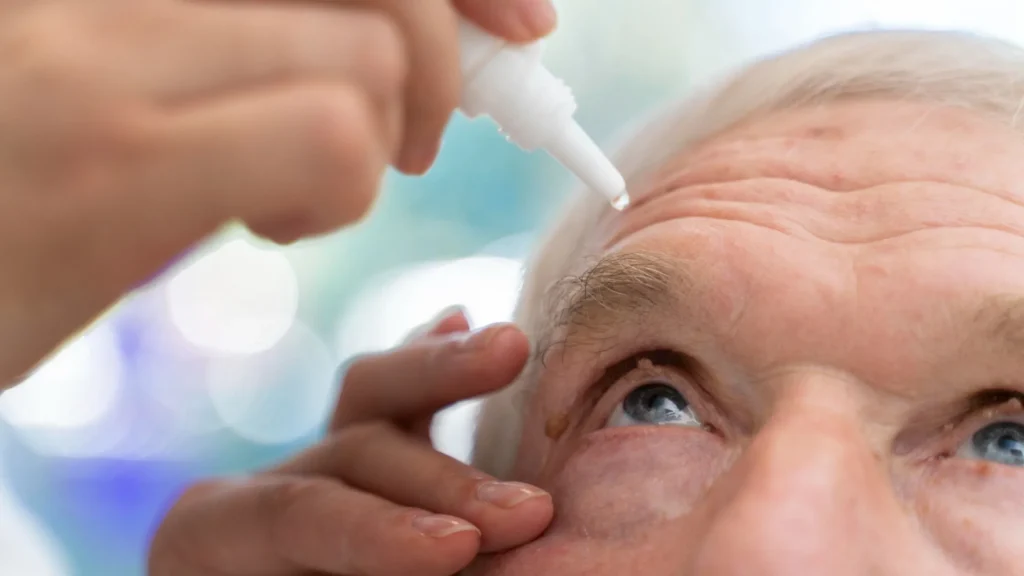How to care for your eyes with diabetes?
If you’re living with diabetes, you may already know that your eyes are at risk. Diabetic retinopathy is one of the most common complications of diabetes, and it can lead to severe vision problems, even blindness, if not managed properly. But here’s the good news: with consistent self-care, lifestyle changes, and routine medical check-ups, most people can preserve their vision.
In this guide, I, Dr. Advaith Sai Alampur, an ophthalmologist specializing in diabetic eye diseases, will walk you through every single step of self-care in managing diabetic retinopathy. This isn’t just a list—it’s a detailed, human explanation of how you can take charge of your eye health. By the end of this article, you will:
- Understand what diabetic retinopathy is
- Know how to identify early warning signs
- Learn evidence-based self-care practices
- Be able to implement lifestyle changes
- Understand when and why to seek medical help

AUTHOR
Ophthalmologist/ Eye Surgeon 13+ Years Exp
MBBS, MS – Ophthalmology
TSMC- TSMC/FMR/05251 (2018)
CONDITION
CALL US 24/7 FOR ANY HELP
GET IN TOUCH ON
What Is Diabetic Retinopathy? Explained Simply
Diabetic retinopathy is a complication of diabetes that affects your retina, the thin layer at the back of your eye. Think of the retina as the film in a camera that captures the images you see. When blood sugar levels are too high for too long, the tiny blood vessels in your retina get damaged. This leads to leaking, swelling, or complete closure of these vessels.
There are two main types:
- Non-Proliferative Diabetic Retinopathy (NPDR): Early stage where blood vessels swell and leak.
- Proliferative Diabetic Retinopathy (PDR): Advanced stage where new abnormal blood vessels grow, which can bleed and cause vision loss.
Real Patient Insight: I had a patient named Ramesh, a 52-year-old teacher, who came in for a routine check-up. He had no vision complaints but had mild NPDR. Early diagnosis helped us prevent progression with simple lifestyle changes and close monitoring.
Top 10 Diabetic Retinopathy Self-Care Tips to Protect Your Vision Naturally
The earlier you start taking care of your eyes, the higher your chances of preventing vision problems. While treatments exist, the foundation of managing diabetic retinopathy lies in prevention and early intervention. And that’s something YOU can control.
1.Blood Sugar Control: The First Line of Defense
High blood sugar is the root cause of diabetic retinopathy. The longer your blood sugar stays high, the more damage it causes to your retinal blood vessels.
- Target HbA1c: Keep it below 7% (or as advised).
- Self-Monitoring: Use a glucometer regularly.
- Meal Planning: Opt for low-glycaemic index foods like oats, barley, and lentils.
- Medication Adherence: Never skip doses. Adjust only under medical supervision.
Quick Tip: Keep a logbook of blood sugar readings. This can help your doctor adjust your treatment.
2.Blood Pressure and Cholesterol: The Hidden Villains
High BP and cholesterol silently worsen retinopathy by stressing your blood vessels.
- Ideal BP: <130/80 mm Hg
- Manage Cholesterol: Especially LDL (“bad cholesterol”)
- Lifestyle Tips:
- Reduce salt intake
- Include healthy fats (e.g., nuts, seeds, fish)
- Exercise daily
- Medication Insight: Statins and ACE inhibitors often help in reducing these risk factors.
3.Regular Comprehensive Eye Exams: Your Lifesaver
Early stages often have no symptoms. That’s why routine eye check-ups are critical.
- Schedule: Once every year or as advised
- What Happens:
- Visual acuity test
- Dilated retinal exam
- Optical Coherence Tomography (OCT)
- Fundus photography
Doctor’s Note: Always inform your eye specialist that you’re diabetic so they can tailor the check-up accordingly.
4. Diet & Nutrition: Food As Medicine
Eating right helps manage blood sugar, BP, and cholesterol.
- Focus On:
- Green leafy vegetables
- Whole grains (like ragi, jowar)
- Lean proteins
- Fresh fruits in moderation (low-GI ones like guava, apple)
- Avoid:
- Refined sugars
- Deep fried foods
- High-sodium packaged snacks
Pro Tip: Follow the ‘plate method’ – half your plate veggies, one-quarter protein, one-quarter whole grains.
5. Physical Activity
Exercise improves insulin sensitivity, reduces BP and boosts circulation to your eyes.
- Routine:
- 30 mins of brisk walking 5 days a week
- Add strength training 2 days/week
- Start Slow: If new to exercise, begin with 10-15 minutes daily and build up
6. Quit Smoking: It’s Non-Negotiable
Smoking constricts blood vessels and reduces oxygen to the retina, accelerating vision loss.
- Help Available:
- Nicotine replacement therapy
- Behavioural therapy
- Support groups
Support Tip: Tell your friends/family about your decision. Accountability helps.
7.Manage Stress: Your Eyes Feel It Too
Chronic stress spikes cortisol, affecting sugar levels.
- Stress-Relief Practices:
- Yoga and meditation
- Breathing exercises
- Talking to a therapist
Doctor’s Insight: I often see sugar spikes after patients face emotional distress. Self-awareness and support systems are powerful tools.
8.Medication Adherence: Do Not Skip
Each missed dose is a missed opportunity to prevent progression.
- Use Tools:
- Pill organizers
- Alarms/reminders on phone
- Involve caregivers/family
9.Protect Your Eyes Daily
- Sunglasses: Wear UV-protected glasses outdoors
- Avoid Eye Strain:
- Follow 20-20-20 rule: every 20 mins, look at something 20 feet away for 20 seconds
- Maintain Hygiene: Especially if using eye drops or contact lenses
10.Know When to Seek Help Don’t wait for vision changes. But if you notice any of the following, see your doctor immediately:
- Blurry vision
- Floaters or dark spots
- Sudden loss of vision
- Trouble seeing colours
Emerging Treatments While prevention is best, treatments like intravitreal injections, laser therapy, and surgery can help in advanced stages. Always discuss all options with a retina specialist.
Final Words From Dr. Advaith Sai Alampur
Living with diabetes can be challenging, but protecting your eyes doesn’t have to be. With the right steps, awareness, and support, you can take control of your eye health.
As a doctor, my role isn’t just to treat but to educate and empower. I hope this guide gives you clarity and confidence to start your self-care journey today. If you’re unsure where to begin, start with a check-up. That’s where prevention begins.
Appointment Form
AUTHOR
Ophthalmologist/ Eye Surgeon 13+ Years Exp
MBBS, MS – Ophthalmology
TSMC- TSMC/FMR/05251 (2018)
CONDITION
CALL US 24/7 FOR ANY HELP
GET IN TOUCH ON
Appointment Form
About Us
Saijyothi Eye Hospital, where excellence meets compassion. Founded by the esteemed Dr. Saibaba Goud, M.S., Ph.D., Padma Shri Awardee, our institution stands as a beacon of hope for those seeking exceptional eye care. Dr. Saibaba Goud’s vision goes beyond restoring sight, aiming to transform lives. At Saijyothi Eye Hospital, we offer exceptional care, from routine eye exams to advanced surgeries, with personalized services tailored to each patient’s needs.
Our Locations:
West Marredpally
- Plot No 185, Road No 1 Beside Kennedy School, Opposite lane to Om Shanthi Foods, West Marredpally, Secunderabad-500026.
Kompally
- 3rd Floor, Vaishnavi Lemini Arcade, Doolapally Road, Above Ratnadeep Super Market, Devender Colony, Kompally, Hyderabad, Telangana 500014
Uppal
- D.No. 2-2-15, Hanuma Sai Nagar, Uppal X Roads, Near Gandhi Statue Centre, Uppal, Hyderabad, Telangana 500039

